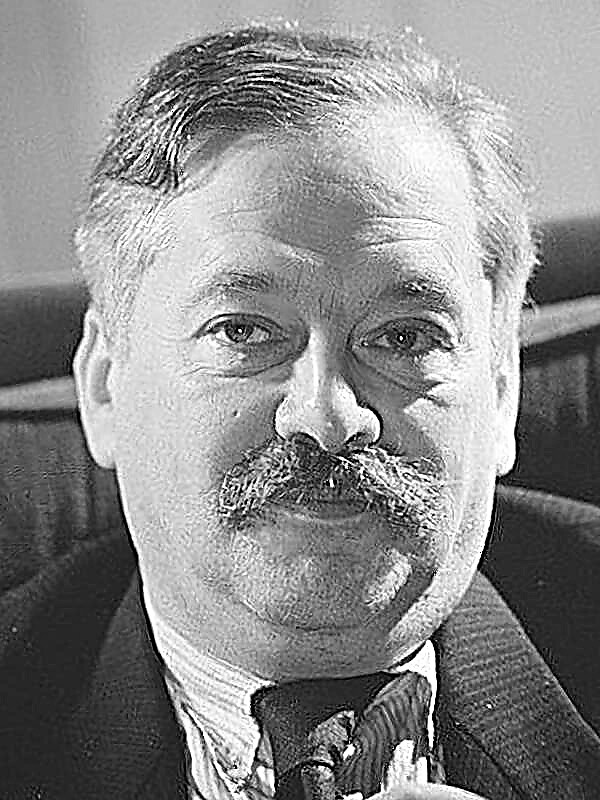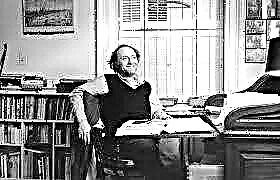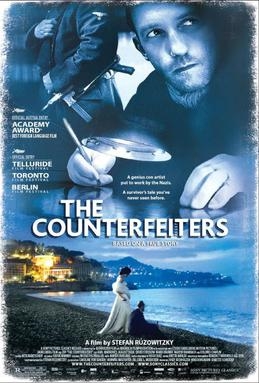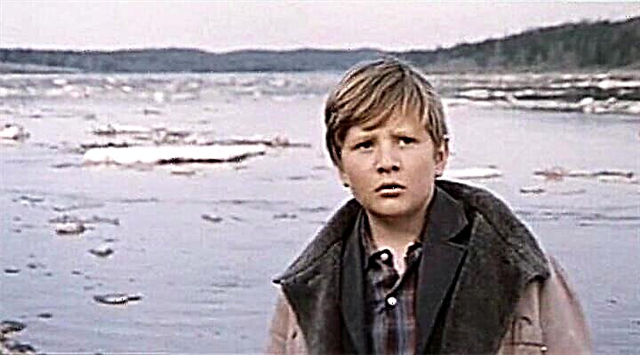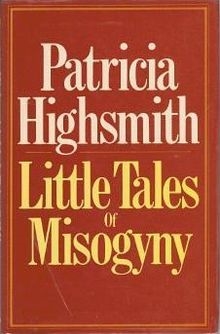The play is preceded by a prologue delivered by one of the actors before the curtain, which is a laudable word to farce as a genre. The prologue says that the play offered to the audience is a farce, more like a puppet comedy or a comedy of masks: it is artless and involves a children's vision of the world - the author asks the audience to tune in this way. As expected in the comedy of masks, the time and place of action are conditional.
Two friends, Leander and Crispin, come to an unfamiliar town. Their situation is rather difficult, since they are completely without money. Crispin, more dodgy and cheerful than Leander, is determined to get money and even get rich, for which he offers a daring plan. Leander should impersonate a rich and noble man who has arrived in the city on an important state business, and Crispin will take care of the rest under the guise of his servant. Leander is not very fond of this venture: he is frightened by the possible consequences of such a fraud, but he surrenders to his friend's perseverance, realizing that their situation is hopeless.
Friends knock on the door of the hotel and ask for better rooms and a hearty dinner. The owner at first treats them incredulously, but Crispin's arrogance and his assertiveness convince the innkeeper that there are important gentlemen in front of him. Soon, Harlequin, a local poet, and his Friend Captain come. More than once they ate a loan at this hotel and hope to have dinner here today. However, the innkeeper's patience ran out, and he refuses to feed them. The sharp-witted Crispin decides to bring Harlequin and the Captain to his side, pretending that he knows the brilliant verses of Harlequin and the bold exploits of the Captain. He immediately orders to feed Harlequin and the Captain dinner at the expense of Leander, and the innkeeper does not dare to refuse: he has already learned that these noble gentlemen cannot be countered in anything.
Meanwhile, Dona Sirena, a noble but impoverished widow, is about to stage a ball. The main guest on it should be open door, the richest man in the city. He has a daughter - a bride for marriageable age, whose hand is hunted by many young people, attracted primarily by the wealth of her father. Counting on the help and patronage of Dona Sirena, each of these seekers of happiness promised her a considerable amount as soon as she married her daughter's opener. Therefore, the coming evening is very important for Dona Sirena. But her faithful servant Colombina brings the sad news: no one else wants to trust her mistress in debt - neither a tailor, nor a cook, nor musicians, which means that the ball will have to be canceled. Donya Sirena is desperate, but Crispin appears with a message that his master will take all the expenses on the ball if Donya Siren helps him to gain the favor of his daughter. Following Crispin, Leander comes, whose courtesy makes Don Siren the most favorable impression.
Gradually, guests gather, excited by rumors about the arrival of an important person in the city. And only openly this news leaves absolutely indifferent - he is solely concerned that his beloved daughter is reading too many novels and refuses to marry some rich merchant. The point of view of the daughter is completely shared by her mother, Mrs. Opener.
At some point, the ball Crispin and Péciniel find themselves alone, and from their conversation it turns out that they have long known each other from the galleys, that Mr. Pécigninel has a very dark past: he has a lot of robberies and lies, and maybe even murders. Crispin warns of Pauline that he must protect his daughter from the sweet speeches of his master Leander. At the same time, he pursues his goal, hoping that a spoiled girl, not accustomed to being beaten up, faced with an obstacle, will immediately fall in love with Leander. That's exactly what happens. But Crispin’s plan: to get as much money as possible out of the Opener - runs into an unexpected obstacle: playing the lover, Leander truly falls in love with Sylvia, the openwork daughter, and, not wanting to appear to the girl an unworthy deceiver, is full of determination to leave the city right there. But the persuasion of Crispin and especially the reminder of how hard they managed to escape from Bologna, where they deceived a lot of people, change Leander’s plans. Moreover, it suddenly turns out that Sylvia fell in love with Leander without a memory.
Crispin, without wasting time, hires several people who at night, when Leander meets with Sylvia, attack him, ostensibly wanting to kill the young man. The girl is mortally scared, and the clever Crispin tells everyone that people were hired by the Opener to get rid of Leander. Soon the whole city, including Madame Polyciniel, was opposed to Father Silvia. The girl, having decided to unite her destiny with her beloved by all means, runs away from home and comes to Don Sirena - it seems that everything contributes to the happiness of lovers. But Leander does not like the deception, and he continually tries to tell Sylvia the whole truth about himself. From this he is persistently restrained by Crispin and Dona Sirena, fearing to be left without the promised money. Leander persists, but here comes Sylvia, who can no longer languish with uncertainty about his health. Then Leander decides to act independently and runs away through the window, without dedicating anyone to his plans.
At this moment, the Doctor arriving from Bologna arrives - he brought with him a lot of documents confirming that in this city Leander and Crispin made debts and fled, deceiving creditors. Together with the Doctor, Polisinel, an innkeeper, and other people come who believe Leandra and Crispin and now dream of only one thing - to return their money. The case turns out rather deplorably, but the cheerful Crispin also turns around: it is extremely eloquent that he proves to everyone present how senseless it would be if two friends were taken into custody - because then the money would probably be lost.
Sylvia, Leander, Dona Sirena and Madame Polyciniel come out of the back room. Sylvia says that now she knows everything about Leander, but she still asks her father to give her for him and explains how the young man behaved nobly towards her. The open door does not want to listen, but everything is against him, even his friend’s soup. The audience is not so much concerned about the happiness of young people as the thought of the possibility of earning money for their happiness, and the chorus begins to persuade the opener. At the most pathetic moment, Sylvia refuses her father's money, and Leander warmly supports the girl. Here, all those gathered have turned their anger on the lovers and literally forced by hook or by crook Mr. Polisinel to sign a generous donation in favor of the young. The open door surrenders, setting only one condition - that Leander dismiss Crispin. This fully coincides with the desire of Crispin himself, who, as he admits, has much more ambition than Leander, and he is determined to achieve a lot in life, especially since he knows how to do it - it is necessary to play in the interests of people, not their feelings. So a complete reconciliation of the interests of all the actors and the comedy ends.

